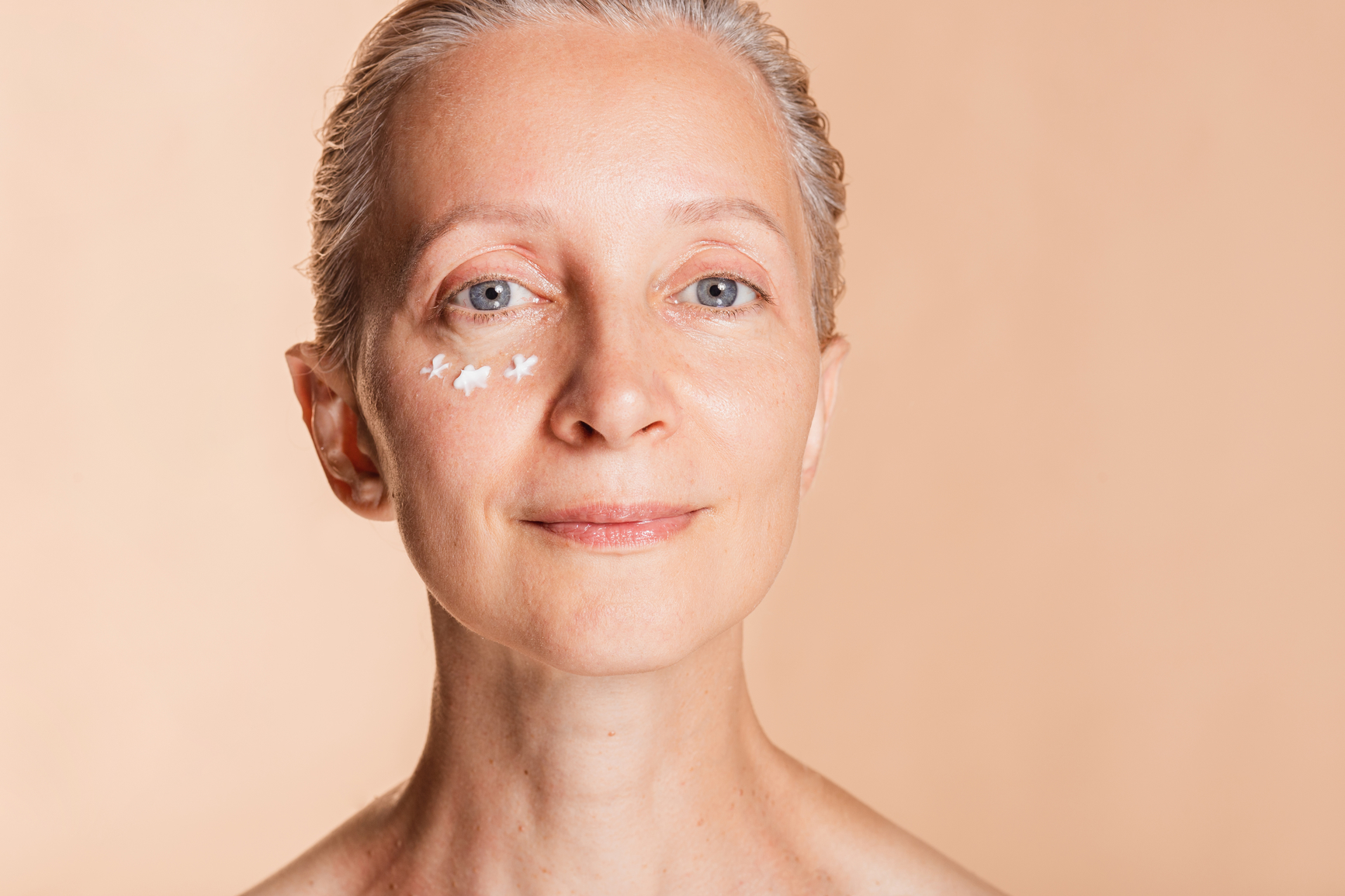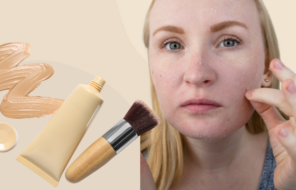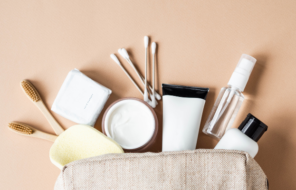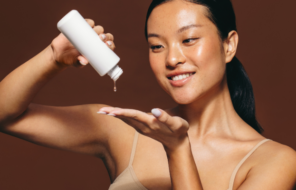Firm, resilient skin is easy to take for granted — until you look in a mirror and realize a few too many drama-filled catch-up sessions with friends (“she said what?!”) and stressful days at work are leaving traces behind. Fine lines on your skin can start appearing as early as your mid-20s.
You can’t control time, but you may have more power over your skin’s aging process than you’d expect. Here are some tips on how to help keep your skin looking firm and healthy at any age.
Why skin stops bouncing back
Taut, smooth skin comes thanks to a few proteins.
Collagen is one of the most abundant proteins in your body. It plays a vital role in making connective tissue and helps keep tissues in your body strong and stretchy. Starting in early adulthood, you naturally produce about 1%-1.5% less collagen each year, which makes it harder for skin to bounce back and leads to sagging, wrinkles, and other signs of aging.
Elastin is another important skin protein. As the name suggests, elastin helps give skin a more elastic quality, so it returns to its shape like a rubber band. Elastin has a low turnover in your body, meaning it’s vulnerable to damage over time, which can keep it from functioning.
You also naturally produce hyaluronic acid, a molecule that’s excellent at holding moisture to plump and nourish the skin. As you may have guessed, natural production decreases with age.
Prevention care for healthier skin
There are two forms of aging processes: intrinsic and extrinsic aging. Intrinsic aging is basically impossible to control. Your body changes over time, hormone balances shift, and your skin naturally loses some elasticity. On the other hand, extrinsic aging is all about the damaging factors you’re exposed to — and that can be more in your control. At any age, you can help minimize skin damage by following these steps:
- Avoid UV damage. Photoaging comes from sun damage. Harmful rays can lead to wrinkles, age spots, decreased elasticity, damaged skin texture, and even skin cancer. The solution? Wear sunscreen with at least 30 SPF every single day.
- Don’t smoke. Smoking tobacco harms your health in multiple ways, including your skin. Kick the habit, or make a point not to start smoking or vaping in the first place. You’ll help keep your skin looking better, and it’s another skincare step that can be literally life-saving.
- Beat sugar cravings. Sugars can make it harder for collagen fibers to repair themselves. You might still indulge in a sweet tooth from time to time, but cutting back on sugar may be good for your skin health.
Subtle skin correctors
Skin creams and serums can’t reverse major skin damage, but they can help improve your skin’s appearance. A good moisturizer helps keep your skin hydrated. The extra hydration can plump your skin, making it look firmer and lessening the appearance of sagging. The effect is temporary, but hydration inside and out is still a smart part of your skin routine. In addition to wearing moisturizer, always drink plenty of water.
Anti-aging skin creams with retinol can have a more lasting effect. Retinol, a form of vitamin A, helps increase collagen production and encourage old skin cell turnover. Retinol skin creams and stronger prescription retinoid creams can cause skin sensitivity or irritation, so it’s best to use these at night to avoid immediately being exposed to the sun. It can also take up to six months to see results, so patience is key, but there are data-backed results to show this can make a real difference in fine lines and wrinkles.
Firm skin diet
Some beauty influencers swear by collagen powder or supplements to benefit the skin. In theory, it makes sense. If you need more collagen, you are what you eat, right? The jury’s still out on whether a dietary collagen supplement offers real benefits or gets digested with everything else you eat instead of making its way to your skin. It’s unlikely to be harmful (collagen’s just another form of protein), but it may not deliver special results.
What may help instead? A diet rich in antioxidants and vitamins, like vitamin C (which is also an ingredient in some topical skincare treatments), as well as essential minerals like zinc and copper. These may give your body the nutrients it needs to fight fine lines.
Skin firming procedures
You don’t need to go under the knife to get more dramatic improvements to your skin. Several noninvasive or minimally invasive procedures can firm up your face and body.
Chemical peels can go deeper than most topical serums and help brighten your skin and reduce fine lines and discoloration.
Laser skin resurfacing uses laser beams to remove a layer from the skin surface (taking superficial imperfections with it). The heat from lasers can also stimulate your body to produce more collagen, giving you skin-firming benefits in the long run. It can, though, take a few treatments to see results.
Ultrasound and radiofrequency treatments also rely on the power of heat to boost collagen production. Dermatologists use specialized devices to send heat into deeper tissues of your skin without burning the surface. A single treatment can be enough, and you can see best results in about six months (it takes time for collagen levels to increase). Skin-firming results last longest when you follow through with consistent skincare practice and exercise (firm muscles under your skin will make your skin look more lifted, too).
Bottom line
Healthy skin, like any other organ in your body, starts with following healthy habits like good nutrition and exercise and avoiding bad habits like smoking and harmful sun exposure. From there, topical treatments and dermatologist-supported procedures can give your skin more specialized and well-deserved love.





